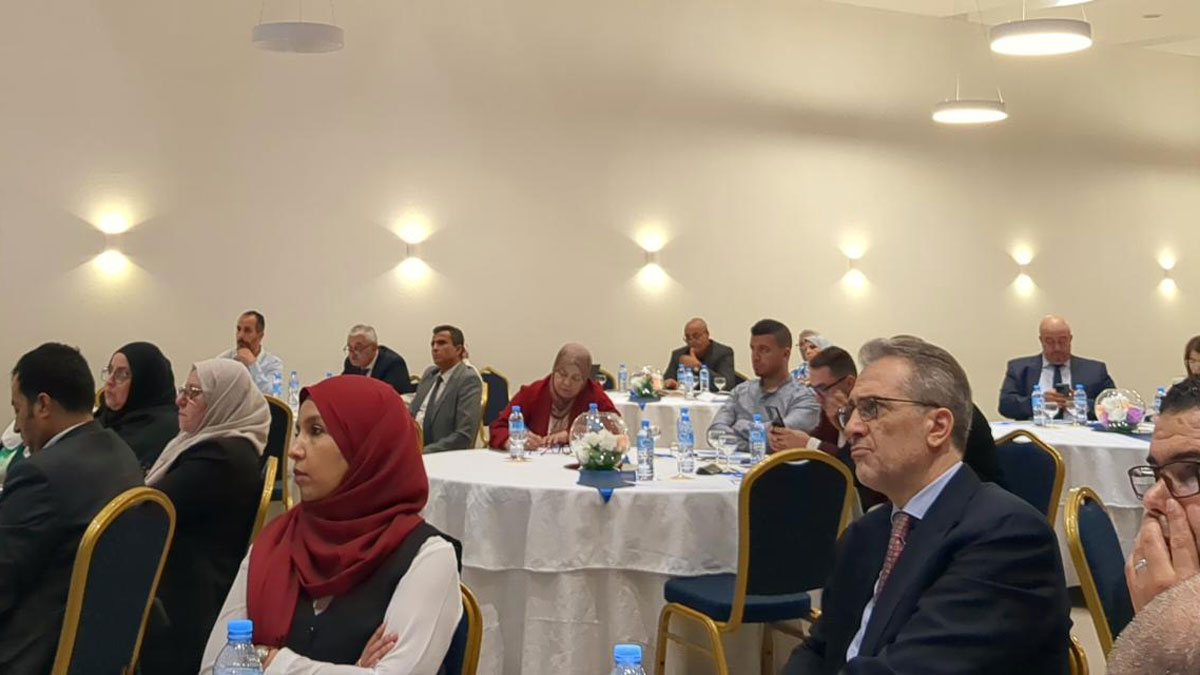Algeria held its national workshop to review and validate national green value chain strategies aimed at promoting intra-African trade, sustainable production, and climate change adaptation. The event was held in Algiers on 23-24 April 2024. It gathered around 45 national stakeholders from the government, businesses, support institutions, and academia. Discussions aimed at refining a national strategy and action plan for two priority sectors selected by national stakeholders based on export potential to AfCFTA markets in North Africa and more broadly across the continent, and the need to advance development of these sectors, including by building their resilience to climate change. Stakeholders from the selected sectors, date and fish products, identified key strategic priorities and a variety of national actions needed to meet agreed sectoral objectives.
Numerous issues were highlighted by national stakeholders. For date products they focused on Establishing a pollen bank and promoting the commercialization of cultivars other than Deglet Nour to expand market offerings and add resilience against climate change; Enhancing value added production of date products downstream; Subdividing tariff headings to monitor diverse exports; Implementing training programs for harvesters and encouraging their entry into the formal economy; Supporting SMEs for the manufacture of packaging, equipment and inputs necessary for the recovery of waste; Conducting in-depth market research on African markets; Encouraging date processors in Algeria to boost their visibility in African markets; Establishing a collaborative platform for collaboration between researchers, universities, research centers and production companies is essential to stimulate innovation within the sector. For fish products issues focused on: Integrating green production systems in marine fisheries and marine aquaculture; Responding to consumer preferences in African markets; Creating public-private partnerships for the production of value-added products; Better integrating aquaculture and aquaculture in producing regions; Promoting solar powered aquaculture in desert regions; Further developing hygiene and sanitation programmes as well as certification programmes for fish and processors; Fostering the development of electronic platforms for information exchange across the industry; Increasing the participation of rural women in the aquaculture industry.
The project for the inclusion of green initiatives into national AfCFTA implementation strategies is a joint initiative led by UNCTAD and UNECA, implemented in twenty countries from all five African sub-regions. It's aim is to assist beneficiary countries in the development of green value chain strategies to promote intra-African trade and climate resilience in the context of the AfCFTA.



